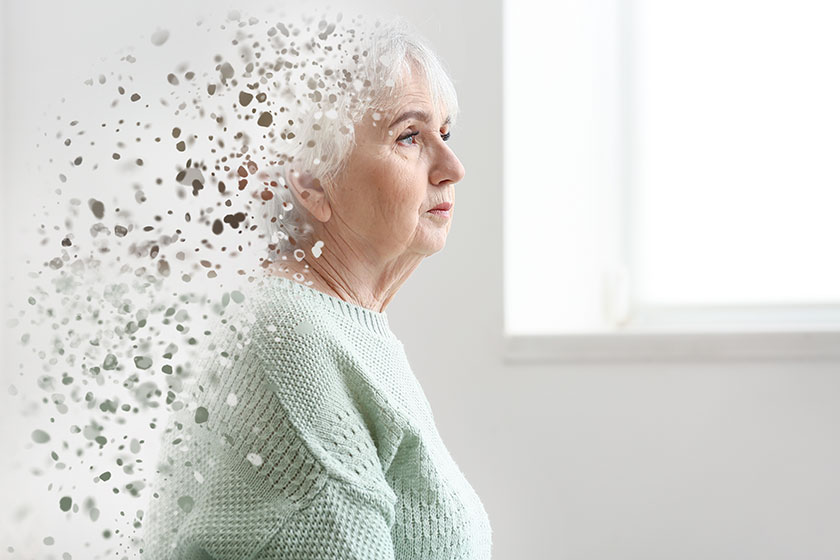Symptoms that substantially impair reasoning, memory, and social skills are regarded as dementia when they significantly interfere with day-to-day functioning. There is not one particular illness that causes dementia, and the disorder can be caused by many different illnesses. Memory loss is a common symptom of dementia, but it can have many other different causes. Memory loss alone does not necessarily indicate dementia, despite the fact that it is frequently one of the first symptoms of the illness. Although there are several additional causes of dementia, Alzheimer’s disease is the most frequent cause in older persons. Some dementia symptoms could be reversible, depending on the underlying cause. Continue reading to find out more.
Symptoms of Dementia
The symptoms of dementia can vary based on the cause. However, the common signs and symptoms are as follows:
Cognitive Changes
- Difficulty in finding words or communicating
- Memory loss which is often noticeable by another person
- Difficulty in problem-solving or reasoning
- Difficulty with spatial and visual abilities like getting lost while driving
- Difficulty organizing and planning
- Difficulty in managing complicated tasks
- Disorientation and confusion
- Difficulty with motor functions and coordination
Psychological Changes
- Depression
- Personality changes
- Inappropriate behavior
- Anxiety
- Agitation
- Paranoia
- Hallucinations
When to Consult a Professional
If you are caring for an older loved one, it is recommended for you to consult a professional when you notice your loved one experiencing one or more of the above symptoms. Some medical conditions that can be treated may be the reason of dementia. Hence, it is important to determine the underlying cause at an early stage to receive the proper treatment.
Causes of Dementia
Damage to or loss of the brain’s nerve cells and connections is what leads to dementia. Dementia can have varied effects on different people and produce distinct symptoms depending on the part of the brain that is affected. Dementias are frequently categorized according to characteristics they share, such as the protein or proteins deposited in the brain or the area of the brain that is affected. Some illnesses that resemble dementias, particularly those brought on by pharmaceutical interactions or vitamin shortages, may get better with treatment, hence reversing the condition.
Reversible Dementia-Like Symptoms
- Metabolic problems and endocrine abnormalities – Individuals with low blood sugar, thyroid problems, have problem absorbing vitamin B12, or have too much or too little calcium or sodium can develop dementia-like symptoms.
- Immune disorders and infections – Fever or other side effects caused by the body’s attempt to combat an infection can cause dementia-like symptoms.
- Side effects of medication – An interaction with certain medications, or side effects of medications can cause dementia-like symptoms.
- Nutritional deficiencies – Not getting enough of certain nutrients like vitamin B1, B16, and B12 can cause dementia-like symptoms. Other nutrients like vitamin E and copper that are lacking in one’s body may also cause the symptoms.
- Brain tumors – It is very rare but the damage caused by a brain tumor can cause dementia-like symptoms.
- Subdural hematomas – The space between the surface of the brain and the rest of its covering may bleed after a fall or other forms of accidents. This may cause dementia-like symptoms.
- Normal-pressure hydrocephalus – This happens when the ventricles in the brain are enlarged and cause problems like memory loss and urinary difficulty.







